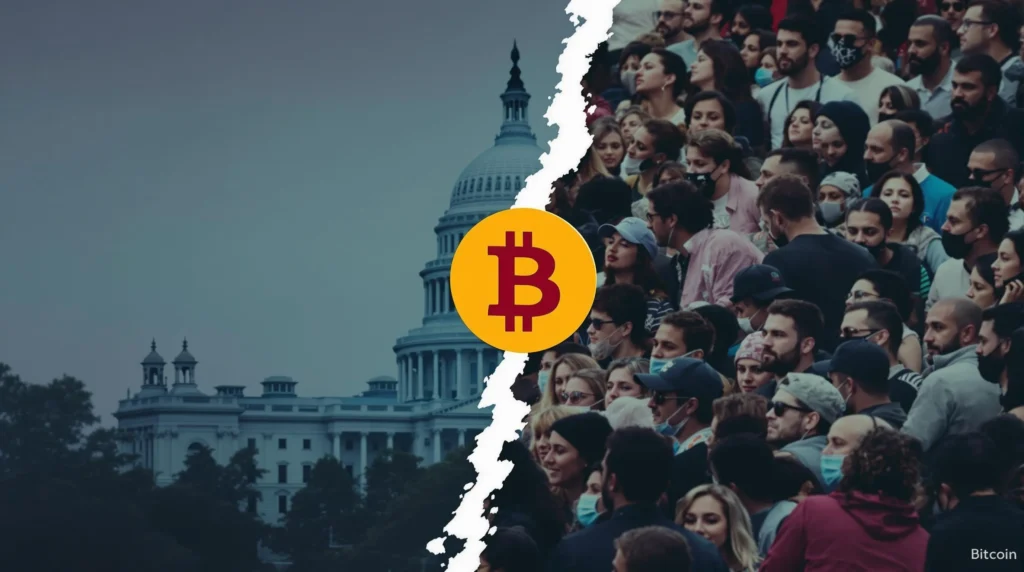Urgent Question: Bitcoin’s Fate – Will it Remain the People’s Crypto?

Bitcoin, once a fringe digital currency, is rapidly becoming a mainstream topic of conversation, even within the halls of government. As nations begin to consider Bitcoin as a legitimate national reserve asset, a crucial question emerges: Will Bitcoin serve the interests of the state, or will it remain true to its original ethos as a cryptocurrency for the people? This isn’t just a philosophical debate; it’s a question with profound implications for the future of finance and individual liberty.
The Rise of Bitcoin as a National Reserve Asset: A Paradigm Shift?
For years, Bitcoin was dismissed by many traditional financial institutions and governments. However, its resilience, growing adoption, and finite supply have started to turn heads. Several nations are now exploring or have already taken steps to recognize Bitcoin as a legitimate national reserve asset. This shift could potentially reshape global finance, but it also raises concerns about the core principles of decentralization that underpin Bitcoin.
Why are countries considering Bitcoin for their reserves?
- Diversification: Bitcoin offers diversification away from traditional reserve currencies like the US dollar, reducing reliance on single economic powers.
- Inflation Hedge: With a capped supply of 21 million coins, Bitcoin is seen as a potential hedge against inflation, as fiat currencies can be devalued through increased supply.
- Technological Innovation: Embracing Bitcoin can position a nation at the forefront of technological innovation and attract crypto-related businesses and talent.
- Financial Inclusion: In countries with unstable financial systems, Bitcoin can offer a more stable and accessible alternative, promoting public access to financial tools.
The Decentralization Dilemma: State Control vs. Public Access
The very essence of Bitcoin lies in its decentralization. It was created to be a peer-to-peer electronic cash system, free from the control of central banks and governments. But what happens when states start accumulating Bitcoin as a national reserve asset? Does this inherently contradict the spirit of decentralization, or can these two concepts coexist?
The Tightrope Walk: Balancing State Adoption and Decentralized Principles
Navigating this new landscape requires careful consideration. While state adoption could bring legitimacy and stability to the cryptocurrency market, it also carries the risk of increased regulation and potential control, which could stifle innovation and limit public access. The crypto community must actively participate in shaping this narrative to ensure that the principles of decentralization are not compromised in the pursuit of mainstream acceptance.
Bitcoin for the People: Preserving Public Access and Empowerment
At its heart, Bitcoin has always been about empowering individuals. It offers a financial system that is accessible to anyone with an internet connection, regardless of their location or socioeconomic status. Ensuring public access to Bitcoin is crucial for maintaining its transformative potential. This means advocating for policies that:
- Promote financial literacy: Educating the public about cryptocurrency and its benefits is essential for widespread adoption and empowerment.
- Support open-source development: Maintaining a robust and decentralized development ecosystem ensures Bitcoin remains resistant to censorship and control.
- Resist excessive regulation: While some regulation is necessary, overly restrictive measures could stifle innovation and limit public access.
- Champion privacy and security: Protecting user privacy and ensuring the security of Bitcoin networks are paramount for maintaining trust and fostering wider adoption.
Examples in Action: Nations and Bitcoin Reserves
Several countries are already experimenting with Bitcoin as part of their financial strategy. El Salvador famously adopted Bitcoin as legal tender, and other nations like the Central African Republic have followed suit, albeit with varying degrees of success. These examples highlight both the potential and the challenges of integrating Bitcoin into national economies.
| Country | Bitcoin Initiative | Potential Benefits | Challenges |
|---|---|---|---|
| El Salvador | Bitcoin as legal tender | Increased financial inclusion, reduced remittance costs, economic diversification | Volatility, infrastructure challenges, international pressure |
| Central African Republic | Bitcoin adoption | Potential for economic growth, attracting investment, bypassing traditional financial systems | Limited internet access, regulatory hurdles, economic instability |
These early adopters serve as crucial case studies, providing valuable lessons for other nations considering Bitcoin as a national reserve asset. The key takeaway is that successful integration requires a balanced approach that considers both the economic benefits and the need to preserve public access and decentralization.
The Path Forward: Navigating Bitcoin’s Dual Destiny
The question of whether Bitcoin will primarily serve the state or the people is not a binary choice. It’s a spectrum, and the future of cryptocurrency will likely involve a complex interplay between these two forces. The crypto community, however, has a vital role to play in ensuring that Bitcoin remains accessible to the public and stays true to its decentralized roots. This requires active engagement in policy discussions, continuous education, and unwavering advocacy for the principles that made Bitcoin revolutionary in the first place.
Conclusion: A Critical Crossroads for Bitcoin
Bitcoin stands at a critical crossroads. Its journey from a niche digital currency to a potential national reserve asset is remarkable. As governments worldwide grapple with the implications of cryptocurrency, the decisions made today will determine whether Bitcoin fulfills its promise as a tool for individual empowerment and decentralization, or if it becomes primarily a tool of state power. The future of Bitcoin – and indeed, the future of decentralized finance – depends on our collective vigilance and our commitment to upholding its foundational principles for the benefit of everyone, not just the state. Let’s ensure that Bitcoin remains, first and foremost, a cryptocurrency for the people.










